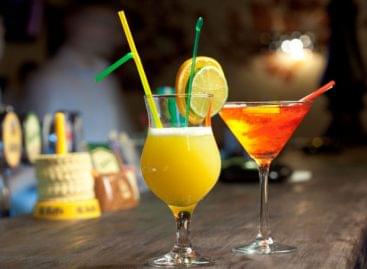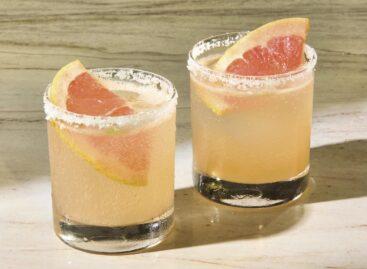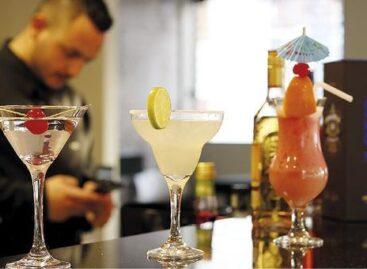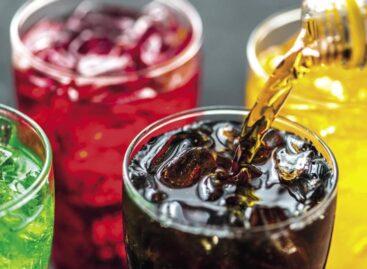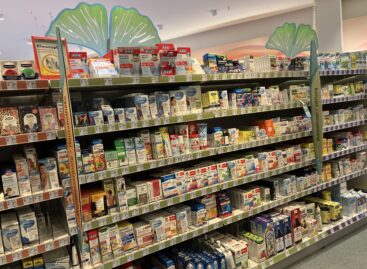Let’s talk about tequila!
There are two tequila categories: the distillate made of 100-percent blue agave and the mixto – the alcohol content of the latter is provided by minimum 51 percent blue agave and the rest is from sugar or molasses. Strong, smoky distillates made of maguey agave are called mezcal. The label on a bottle of tequila never says ‘mixto’, so if there is no 100-percent agave content indicated on the label, the given drink is a mixto.

Viktor Molnár
Bacardí-Martini portfolio brand manager
Dunapro
We learned from Viktor Molnár, the Hungarian manager of Dunapro’s Bacardi-Martini brands that global demand for agave has jumped. Tequila is one of the smallest spirits segments in the Hungarian market.
Dániel Lehner, senior brand manager of Sierra Tequila’s distributor, Heinemann Testvérek Kft. told our magazine that tequila’s popularity has increased in recent years. The sales growth is slower in Hungary, and the majority of products sold are still mixtos.
Brave new world!

Dénes Szántó
senior brand manager
B-F Hungary
According to Dénes Szántó, senior brand manager of B-F Hungary Kft. (the distributors of the El Jimador Blanco and Reposado brands), agave-based products were responsible for about 1 percent of standard+spirit sales in Hungary in both 2019 and 2020. At a global level this proportion is 3-4 percent, and category sales are growing above the average.
András Tripolszky, marketing director of Roust told our magazine that consumers typically come across mainstream brands in shops and the average bar or restaurant, but the situation is different in premium bars.
The good, the bad and the misunderstood
Mr Szántó’s experience is that tequila brands haven’t invested a lot of energy in educating Hungarian consumers, so the drink is still a party shot or ‘salt-lemon ritual’ drink in bars and clubs. In premium bars tequilas more and more often appear as cocktail ingredients.

András Tripolszky
marketing director
Roust
Mr Tripolszky added that tequila is still not enjoyed as a long drink, but it is already used in cocktails. Brand loyalty is more characteristic of off-trade brands. Abroad flavoured tequilas are already popular and there are also tequila hard seltzers, such as the Playamar brand of Jose Cuervo.
Positioning and innovation
Mr Lehner believes tequila is now typically a spirit that is enjoyed in the company of others, it has a youthful and dynamic image, and its traditions make it even more special. Sierra Milenario Café is flavoured with coffee, while smoky tasting Sierra Milenario Fumado is made using the ‘ahumado’ method.
Mr Molnár spoke to us about young people liking mixtos and the salt-lemon ritual around its consumption. Flavoured tequilas haven’t become popular in Hungary yet, for instance Dunapro’s Patrón brand has recently announced: they will stop making coffee-flavoured Patrón XO products, and will only focus on producing 100-percent agave tequilas in the future.
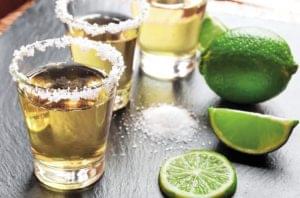
100% agave tequilas are drunk as cognac, the ritual with salt and lemon is gorgeous marketing idea related to the consumption of mixtos
//
The above article has also been published in Issue 2021/12-01 of Trade magazin.
Related news
Cold drink, hot consequences: iced refreshments can cause heart rhythm disturbances
It may sound bizarre at first, but it’s scientifically proven:…
Read more >Related news
WHO: They urge a 50 percent price increase for tobacco, alcohol and sugary drinks
The World Health Organization (WHO) is calling for the prices…
Read more >Eurozone economic growth accelerated in June
The eurozone’s economic performance accelerated in June, according to the…
Read more >This is how drug prices are changing: the government introduced price restrictions
The Ministry of National Economy’s price restrictions on medicines came…
Read more >
